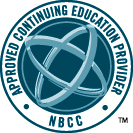
Innovations in Counseling

The Significance of Holidays, Anniversaries, and Other Triggers of Grief in the African-American Community
Grief is a universal response to a loss. However, there are unique and unshared losses that are faced by members of the African-American community. There are social, cultural, political, and historical factors that may influence the grieving process for African-Americans and often alienate this already underserved community in the mental health care system. Many grievers are unaware of the various factors that can trigger their grief journey.
In this webinar, we will provide an overview of grief, physical and symbolic losses, and how anniversaries, holidays, and other triggers impact African-Americans as they navigate loss.
After this webinar, participants will be able to:
- Provide an overview of the grief process.
- Recognize physical and symbolic losses.
- Describe triggers of grief for the African-American community.
- Identify how to navigate resources to assist clients in navigating the grief journey
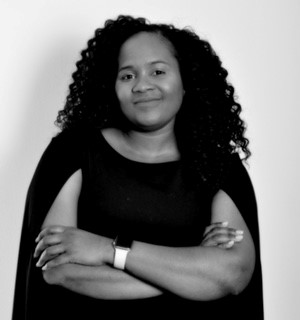
Ajita M. Robinson, PhD, NCC, LCPC-S
Dr. Ajita Robinson has a Bachelor of Science in business administration and a Bachelor of Arts in psychology with a minor in Spanish, and she went on to complete a Master of Arts (Research) in counseling and human development at Saint Louis University. Dr. Robinson initially moved to Washington D.C. to finish a degree in law but ultimately decided to pursue a doctorate in counselor education at the George Washington University. While obtaining her PhD, she completed a post-master’s certification in grief and loss and a fellowship in neurodevelopmental disabilities at Children’s National Medical Center.
Dr. Robinson has over 15 years of experience serving individuals, families, and communities. She specializes in creating safe environments where one can begin to heal from life’s hurts and live a fuller life. In addition to being the Founder and Clinical Director of Friends in Transition Counseling Services, a mental health practice located in Bethesda, Maryland, CEO of Dr. Ajita Robinson, a consulting agency where she serves as an income strategist for small business owners, and CEO of Mastering Insurance, LLC, a credentialing and billing agency, she is an assistant professor in the Counseling Department at Argosy University in Arlington, Virginia. Dr. Robinson has traveled the country providing workshops, trainings, and consultations to a variety of audiences, including mental health professionals, families, educational institutions, communities impacted by crisis, students, and many more.
Q & AAdolescent Minorities and Suicide Risk: 15 Things We Often Miss
Although we, as a society, have gotten better with the topic of suicide, it still remains taboo in some communities. Sadly, when we do talk about it, we tend to leave out adolescents of ethnic minority status who face special challenges because of their race and ethnicity, access to resources, and lack of community support.
For many ethnic minority youth struggling with suicidal ideation, things take an even darker turn when suicide-contagion becomes a community-wide concern. Ethnicities of all cultures are struggling with this rarely recognized epidemic.
After this webinar, participants will be able to:
- Identify the cultural, emotional, psychological, societal, familial, and traumatic factors that often cause teens of all ethnic groups to consider the irreversible act of suicide.
- Discuss the influence and “power” of suicide contagion in the American, Native American, and African-American cultures.
- Describe the important role parents, teachers, and mental health professionals play in the understanding and prevention of teen suicide.
- Recognize the 15 things we all tend to miss when trying to understand adolescent suicide.

Támara Hill, MS, NCC, CCTP, LPC
Támara Hill is a licensed therapist and certified clinical trauma professional in private practice who specializes in working with children and adolescents who suffer from mood disorders, trauma, suicidal thoughts, and disruptive behavioral disorders.
Ms. Hill earned her Bachelor of Arts degree in psychology, a minor certification in forensic science, and her Master of Science in counseling from Chatham University. She also attended semesters at Carnegie Mellon and Carlow University. After graduating, Hill began working with underprivileged kids in a variety of settings, including schools, community centers, juvenile delinquency programs, residential treatment facilities, and hospitals in rural and inner city areas.
Over the past 11 years of consulting with parents, families, and caregivers and treating suffering youths internationally, Ms. Hill realized a strong need for navigation through the muddy waters of the mental health system. During that time, she became certified in trauma therapy through the International Association of Trauma Professionals, and she developed her private practice, Anchored Child & Family Counseling in Pleasant Hills, Pennsylvania, to serve needy families.
Ms. Hill credits her career passion to a “divine calling,” and she is internationally recognized for corresponding literary works as well as appearances on radio and other media platforms. She is an author, family consultant, and founder of Anchored-In-Knowledge. Visit her on Twitter or YouTube.
Q & AA Culture of Stigma: The African-American Woman and Mental Health
Although African-American women are burdened with mental health issues, their use of mental health services is low. “I don’t have time for that” or “I can handle it” are all too familiar responses that an African-American woman may make to explain why she doesn’t seek help for herself. This lack of attention to her mental health has detrimental effects for the African-American community as a whole. In this webinar, we will discuss the pertinent issues relevant to the African-American woman and her struggle to address and overcome mental health problems. The intersection of history, the “Strong Black Woman” concept, stigma, mistrust of the mental health field, and lack of culturally responsive mental health treatment reveals the factors that keep this population of women from accessing the services that they need most.
After this webinar, participants will be able to:
- Identify the role that history, the “Strong Black Woman” concept, stigma, mistrust of the mental health field, and lack of culturally responsive mental health treatment have in limiting the African-American woman’s capacity to address her mental health problems appropriately.
- Recognize the impact that the lack of effective mental health treatment for African-American women has on the African-American community as a whole.
- Explore their role as helpers in reducing the barriers to effective mental health treatment for the African-American woman.

Shana D. Lewis, PhD, NCC, LPC-S
Dr. Shana D. Lewis is a National Certified Counselor and a Licensed Professional Counselor. She is a 2014 NBCC Minority Fellowship Program Awardee and currently sits on the MFP Master’s Advisory Council. She has a bachelor’s degree in psychology from the University of Houston, a master’s degree in counseling psychology from Troy State University, and a PhD in counselor education from Sam Houston State University. Dr. Lewis is the owner and clinical director of Living Well Professional Counseling Services, PLLC, a private practice counseling agency in Bellaire, Texas, where she specializes in treating women and adolescent girls. She is also the founder of Her VOICE, a 501c3 nonprofit organization dedicated to empowering survivors of domestic violence through mentorship and education. Additionally, Dr. Lewis has over 17 years of experience working in the mental health field serving a variety of populations.
Dr. Lewis is also a sought after keynote and motivational speaker, trainer, and leader in the quest against intimate partner violence and other women’s issues. She delivers powerful, high-energy keynotes to audiences all across the country about a variety of issues, including domestic violence, women’s issues, spiritual issues, mental health issues, and transformation. As a result of her expertise in these areas, Dr. Lewis has been featured on several local media outlets, including Great Day Houston, Houston Life, Magic 102.1, Amazing 102.5 FM, and 93.7 The Beat.
Dr. Lewis has authored two books. Get Your Life! The 90 Day Journal and Get Your Life! The Blueprint are both designed to guide readers toward transformation by teaching the key areas that must be addressed in order to “create the life you want today.”
Q & AAn Ecological Theory: School Counselors’ Effectiveness With African-American Boys With Disabilities
This webinar will explore the results of a grounded theory study related to school counselors’ effectiveness with African-American boys with “disabilities,” who are disproportionately represented in special education. The phenomenon of overrepresentation of African-American boys in special education is an historical problem that has not been addressed by professional counselors. An ecological theory and a conceptual model for school counselors who work with African-American boys with disabilities will be presented based on data collected from school counselors in North Carolina.
After this webinar, participants will be able to:
- Demonstrate awareness of the educational crisis of African-American boys with “disabilities.”
- Identify school counselors’ perceptions of and effectiveness in their work with this population.
- Discuss theory grounded in data from school counselors who work with African-American boys with “disabilities.”
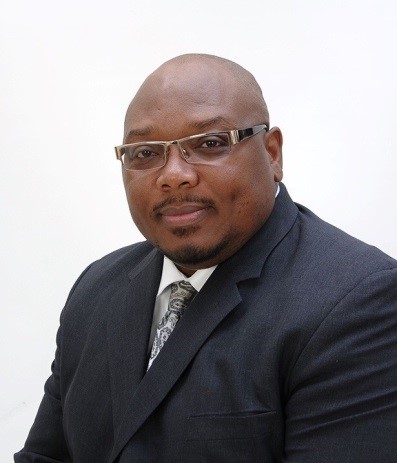
Christopher B. Townsend, PhD, NCC, LPC, LCAS, CCS
Christopher B. Townsend graduated with his bachelor’s degree in psychology (1996) and master’s degree in agency counseling (1998) from Appalachian State University in Boone, North Carolina. He has been a practitioner for 20 years. On April 10, 2018, Dr. Townsend successfully defended his dissertation, entitled A Grounded Theory Study on School Counselors’ Perception and Effectiveness with African American Boys with Disabilities, Who Are Disproportionately Represented in Special Education, at North Carolina Agricultural and Technical State University in Greensboro, North Carolina. He is currently an assistant professor at Texas Tech University Health Sciences Center in the Department of Clinical Counseling and Mental Health. Dr. Townsend is a national and international trainer, specializing in addictions, children’s trauma, and other psychiatric disabilities. His research agenda includes topics related to social justice, domestic and international trauma, and addictions.
Q & AStaying Clinical, Staying Ethical, and Staying Legal in Immigrant Hardship Assessment and Evaluation
This webinar will explore the different types of hardship evaluations licensed professional counselors may conduct as a part of their clinical practice. The webinar will serve as a primer regarding the different types of immigration evaluations such as: Hardship, Violence Against Women Act (VAWA), Cancellation of Removal, Asylum, T Visa (human trafficking), and U Visa (victims of crimes). The webinar will also discuss legal and ethical considerations while undertaking such evaluations.
After this webinar, participants will be able to:
- Identify the types and functions of hardship evaluations and assessments professional counselors can conduct for immigrants and qualifying United States citizens.
- Discuss ethical and legal issues in writing hardship assessments for immigrant clients.
- Integrate popular psychometric inventories and tests to strengthen evaluations.
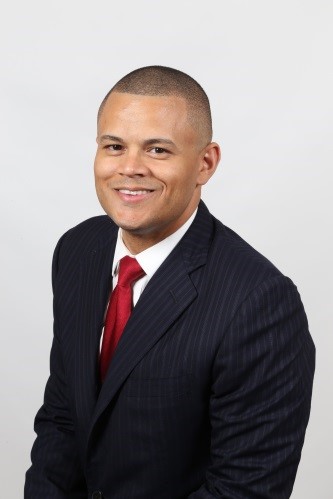
George J. Ramos Jr., MA, NCC, LMHC
George Ramos is a board certified counselor (NCC) and Licensed Mental Health Counselor in New York City. Mr. Ramos earned a Bachelor of Arts in psychology with a minor in disaster studies and a Master of Arts in mental health counseling from Nyack College’s Alliance Graduate School of Counseling. Additionally, he is a third-year doctoral student at the University of the Cumberlands and a 2017 NBCC MFP Doctoral Fellow. Mr. Ramos also is an adjunct professor at Mercy College and Nyack College.
Mr. Ramos worked with at-risk families with the Administration for Children Services for New York City for 10 years as a child protective specialist. He trains child welfare professionals with the City University of New York and is the president of Best Practice Trainers, Inc. Currently, he practices in-home mental health counseling and conducts hardship evaluations for immigration court proceedings at his private practice, In-Home Wellness Mental Health Counseling and Assessment, and he provides mental health consulting for the New York City Department of Health and Mental Hygiene. His research interests are professional counselors’ perceived self-efficacy to perform in-home counseling and counselors’ ability to write immigration hardship evaluations.
Q & AHow Can Hip-Hop Culture and Rap Music Inform Counseling With African-American Men?
Aside from a few noteworthy examples, very little exists within the extant counseling literature base on how hip-hop culture and rap music can be utilized with Black boys or Black men in therapy. To address this dearth in the counseling discourse, this webinar seeks to illuminate how innovative counselors can integrate hip-hop culture and rap music into individual counseling interactions with Black men to discuss salient social issues that interfere with their holistic optimum development (e.g., hypercriminalization and hyperincarceration). Literature examining the history of hip-hop culture and how rap music has been used therapeutically with Black men will be discussed. Additionally, this webinar will connect some of the overlooked and marginalized content within hip-hop culture and rap music to the themes of social justice that undergird and pervade the counseling profession.
After this webinar, participants will be able to:
- Discuss and describe the sociopolitical terrain of the United States in the 1960s and 1970s (e.g., uprisings in protest of police brutality and chronic underemployment) and how this context inspired the emergence of hip-hop culture and rap music.
- Draw parallels between the aforementioned sociopolitical terrain of the 1960s and 1970s that helped burgeon hip-hop culture and rap music and the caustic sociopolitical climate that Black men must navigate today.
- Connect themes (e.g., organizing and resisting redlining in urban communities) espoused by various hip-hop and rap artists with conceptual models of social justice counseling published in respected counseling journals. By making these connections, counselors are better equipped to examine structural barriers that impact the lives of Black men in therapy.
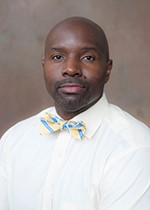
Ahmad Rashad Washington, PhD, NCC
Dr. Ahmad Washington is an assistant professor in the Department of Counseling and Human Development at The University of Louisville. He teaches in the school counseling program where he works with preservice school counseling students as they prepare to transition into the profession. Dr. Washington received his BS in psychology from Francis Marion University, his MA in clinical counseling from Webster University, and his PhD in counselor education and supervision from the University of Iowa in 2013. He is the co-editor of the recent book, Black Male Student Success in 21st Century Urban Schools: School Counseling for Equity, Access and Achievement. Dr. Washington has received various counseling-related awards recognizing his work, including the First Annual Association of Multicultural Counseling and Development Asa Hilliard Scholarship Award (2009). His primary research interests are social justice counseling and hip-hop school counseling. In particular, he is interested in exploring how, and under what circumstances, school counselors engage students in conversation about issues of social injustice through the multifaceted lenses of hip-hop culture. Dr. Washington’s most recent article, titled “Using Hip-Hop Culture and Rap Music in Counseling Black Men,” was recently published in the Journal of Counseling & Development, the flagship peer-reviewed journal of the counseling profession, and it is the featured article on the American Counseling Association website. When Dr. Washington is not working, he enjoys reading, listening to music, practicing Brazilian jiu jitsu, and spending quality time with his friends and wife, Dr. Marta N. Mack-Washington.
Q & ACouples Counseling With the LGBTQ Community
Traditionally, couple therapy models have been heteronormative and pathologizing of nontraditional relationship structures. There is a lack of research on evidence-based effective couple therapy with those in the LGBTQ community. This webinar will analyze the history of LGBTQ relationships. Multicultural issues will be addressed in the context of couple therapy and the LGBTQ community. In addition, research on couple therapy will be analyzed and couple therapy models will be identified along with the barriers to couple therapy. Specific interventions that can be effective with LGBTQ couples will also be assessed.
After this webinar, participants will be able to:
- Define what it means to be “LGBTQ Affirmative.”
- Describe specific couple therapy models.
- Conceptualize specific couple therapy techniques and interventions.
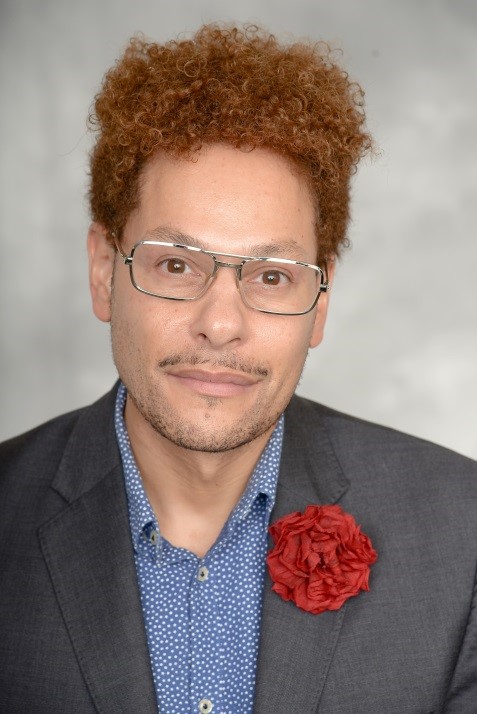
Yamonte Cooper, EdD, NCC, LPCC, CST
Dr. Yamonte Cooper is an associate professor of counseling at El Camino College and an adjunct professor of human sexuality at California Institute of Integral Studies (CIIS), Licensed Professional Clinical Counselor (LPCC), National Certified Counselor (NCC), and AASECT Certified Sex Therapist (CST) in private practice in Los Angeles. He specializes in sex therapy with individuals and couples, relational dynamics, and marital therapy. Further, Dr. Cooper is a gender specialist and an LGBTQ Affirmative Therapist whose work includes working with diverse individuals. He addresses issues of discordant desire, infidelity in couples, sexual dysfunctions, gender and orientation confusion, and sexual compulsivity.
Dr. Cooper is a trauma expert (EMDR, Somatic Experiencing®, neurofeedback, and TF-CBT), employing multiple modalities and interventions with clients suffering from trauma. Further, he specializes in working with couples utilizing Gottman Method couples therapy (Levels 1, 2, and 3), emotionally focused therapy (EFT), and collaborative couple therapy.
Dr. Cooper is an expert on issues of diversity and has authored and co-authored articles and a book chapter addressing working with various populations. He was recently featured in a CNN article, “Why Your Sex Drive Is in Low Gear.” Further, Dr. Cooper was honored with a prestigious Fulbright International Education Administrator Seminar Award in Germany where he exchanged best practices in career counseling and development and best practices with higher education institutions in Botswana. He was recently awarded a Diversity Initiative Award from the National Career Development Association (NCDA).
Q & AOpioid Abuse and Addiction: Multicultural Assessment and Treatment Approaches, Part 2
Despite the great challenges the opioid crisis exacts on American society, there are many evidence-based, effective, and multiculturally sound screening, assessment, diagnostic, and treatment approaches for today’s practicing counselors. This webinar will expand on “Opioid Abuse and Addiction: Multicultural Assessment and Treatment Approaches, Part 1” by exploring in greater depth the skills and strategies needed for effective evaluation and treatment of opioid addiction. Special consideration will be given to psychological interventions, motivational interviewing, and medical treatments, such as buprenorphine therapy for opioid withdrawal. Multicultural considerations will inform all treatment approaches discussed, such as how to integrate diversity into treatment and common barriers faced by minority clients. The presentation aims to increase the understanding of opioid evaluation and treatment though a multicultural lens.
After this webinar, participants will be able to:
- Survey the broad spectrum of effective and multiculturally sound evaluation and treatment approaches for opioid addiction.
- Conceptualize specific, evidence-based psychological and medical-based interventions for opioid addiction.
- Describe multicultural issues within the broad practice of opioid evaluation and treatment, with specific focus on how to incorporate multicultural sensitivity into one’s counseling practice.
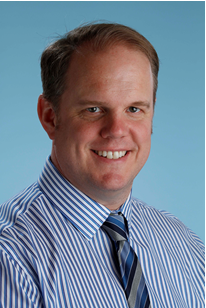
Todd F. Lewis, PhD, NCC, LPC
Dr. Lewis is an associate professor of counseling and counselor education at North Dakota State University. He is a National Certified Counselor (NCC) and Licensed Professional Counselor (LPC). Dr. Lewis is past treasurer and president of the International Association of Addictions and Offender Counselors (IAAOC), a division of the American Counseling Association, and previously served as the IAAOC representative on the Governing Council of the American Counseling Association.
Throughout his career, he has taught graduate-level students in motivational interviewing (MI), addictions and substance abuse, counseling theory, behavior change, assessment, diagnosis, and treatment planning. Dr. Lewis has presented on these topics at many local, state, national, and international venues. He has published numerous research articles related to behavior change, substance abuse, collegiate drinking, and theoretical approaches to addictions treatment and MI. He has twice received the Exemplary Research Award from IAAOC for his research. In 2014, he wrote his first textbook, entitled Substance Abuse and Addiction Treatment: Practical Application of Counseling Theory, published by Pearson Education. He has been a member of the Motivational Interviewing Network of Trainers (MINT) since 2012, and he regularly teaches and conducts courses and workshops teaching and modeling beginning and advanced MI. Dr. Lewis has been active on research teams that have secured both internal and external funding for his work. In addition to his full-time faculty work, Dr. Lewis has garnered significant clinical experience where he has coordinated substance abuse clinical research and treatment services with clients struggling with a range of substance use problems.
Q & AOpioid Abuse and Addiction: Multicultural Assessment and Treatment Approaches, Part 1
Experts agree that the United States is in the throes of an opioid epidemic, as recent estimates suggest that over 2 million Americans have either abused or become addicted to prescription pain medication or illicit opioid drugs. Effective evaluation, diagnostic, and treatment strategies are needed, especially those that incorporate multicultural theory and perspectives. This webinar will explore opioid abuse and addiction in America by explaining the common effects of opioid drugs and why they can be so dangerous and addictive. Common misperceptions about opioid addiction also will be discussed. The webinar will feature key multicultural issues to consider within the evaluation process and how to assess and diagnose opioid addiction taking these into account. The presentation aims to increase the attendee’s understanding of opioid addiction through a multicultural lens and the services counselors can provide to assist in client recovery.
After this webinar, participants will be able to:
- Describe the full range of effects in the opioid drug category, including general effects, effects of overdose, and withdrawal symptoms, and why and how these drugs become so addictive.
- Recognize the scope of the opioid crisis in America and the common misperceptions about opioids that help fuel full-blown addiction.
- Conceptualize the proper evaluation of opioid addiction through a multicultural lens, with specific attention to screening, assessment, diagnosis, and treatment.

Todd F. Lewis, PhD, NCC, LPC
Dr. Lewis is an associate professor of counseling and counselor education at North Dakota State University. He is a National Certified Counselor (NCC) and Licensed Professional Counselor (LPC). Dr. Lewis is past treasurer and president of the International Association of Addictions and Offender Counselors (IAAOC), a division of the American Counseling Association, and previously served as the IAAOC representative on the Governing Council of the American Counseling Association.
Throughout his career, he has taught graduate-level students in motivational interviewing (MI), addictions and substance abuse, counseling theory, behavior change, assessment, diagnosis, and treatment planning. Dr. Lewis has presented on these topics at many local, state, national, and international venues. He has published numerous research articles related to behavior change, substance abuse, collegiate drinking, and theoretical approaches to addictions treatment and MI. He has twice received the Exemplary Research Award from IAAOC for his research. In 2014, he wrote his first textbook, entitled Substance Abuse and Addiction Treatment: Practical Application of Counseling Theory, published by Pearson Education. He has been a member of the Motivational Interviewing Network of Trainers (MINT) since 2012, and he regularly teaches and conducts courses and workshops teaching and modeling beginning and advanced MI. Dr. Lewis has been active on research teams that have secured both internal and external funding for his work. In addition to his full-time faculty work, Dr. Lewis has garnered significant clinical experience where he has coordinated substance abuse clinical research and treatment services with clients struggling with a range of substance use problems.
Q & ANBCC Foundation has been approved by NBCC as an Approved Continuing Education Provider, ACEP No. 805. Programs that do not qualify for NBCC credit are clearly identified. NBCC Foundation is solely responsible for all aspects of the programs.
Each state sets its own requirements for licensure, including continuing education requirements to maintain licensure. Questions about CE requirements for state licensure should be directed to your state board. You can find their contact information on our state board directory.
